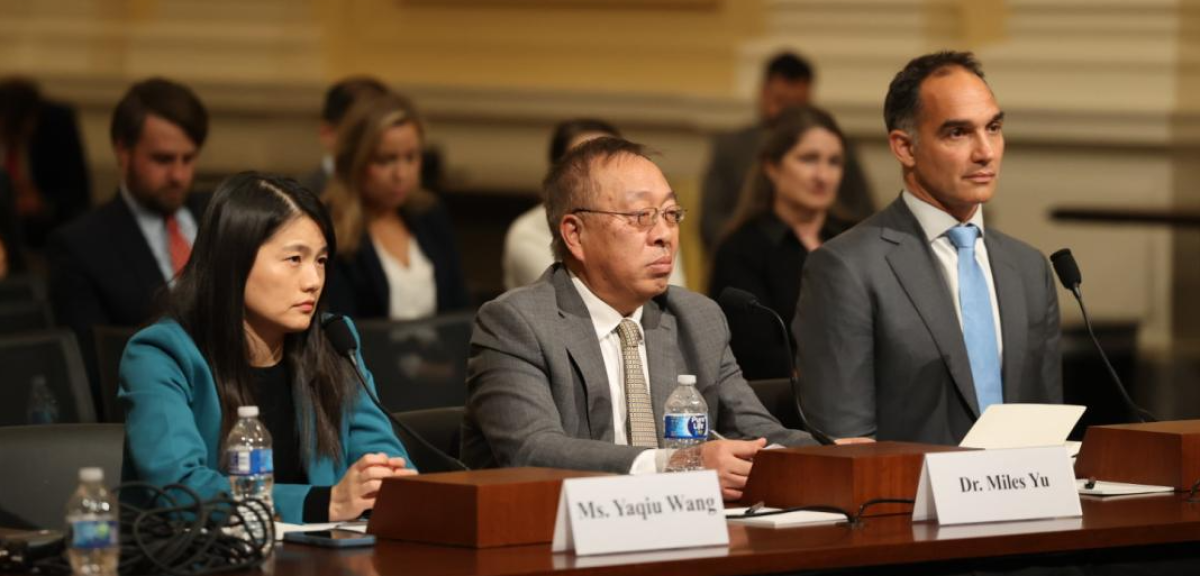Chairman Gallagher's Opening Remarks at the "Discourse Power: The CCP's Strategy to Shape the Global Information Space" Hearing

Click HERE to view full remarks.
-
China’s navy is now the largest in the world, purpose-built for a cross-strait operation to invade or blockade Taiwan.
Many China-watchers around Washington D.C. believe that the Taiwan Strait could be the most important battlefield of the 21st century. But that’s not what the CCP thinks.
In Xi Jinping’s view, the war has already started on the most important battlefield: your mind. The CCP calls it cognitive domain warfare, part of their larger political warfare strategy.
In a handbook on “military political work,” Xi stated, “The crumbling of a regime always starts in the realm of ideas. . . changing the way people think is a long-term process. Once the front lines of human thought have been broken through, other defensive lines also become hard to defend.”
The realm of ideas, according to the document, is a “smokeless battlefield.”
Cognitive warfare is not something we tend to think about here in the West. Sure, we have ideas like soft power, but they’re not a national strategy.
We don’t really do propaganda here. After all, there’s nowhere you can find a more scathing critique of the United States and its government than in the New York Times or Fox News on any given Wednesday.
We don’t have any equivalent of the United Front Work Department, China’s global, industrial scale influence operation. We don’t have colossal state media apparatuses. On the “smokeless battlefield” of people’s minds we don’t have a standing military at all.
How do we fight back on the battlefield of people’s minds while staying true to our values? That’s the question we have for our hearing witnesses tonight.
But before we get there I want to share another quote from Xi Jinping.
In a 2013 speech at the National Propaganda and Ideology Work Conference, Xi issued a call to arms: “innovate foreign propaganda methods, strengthen discourse system construction, strive to forge new concepts, new categories and new expressions that circulate between China and the outside world, tell China’s story well, disseminate China’s voice well, and strengthen our discourse power internationally.”
When I read Xi’s call to “innovate foreign propaganda methods,” my mind immediately jumped to TikTok. That quote is almost a perfect description, albeit in CCP-speak, of the TikTok platform.
On Xi’s “smokeless battlefield,” TikTok is a perfect weapon, camouflaged in plain sight. We’re going to examine some data later about how TikTok’s parent company, ByteDance, has, in Xi’s words, strengthened China’s discourse power.
In 2018, the CCP shut down ByteDance’s news aggregator because it “post[ed] content that goes against socialist core values.” In a groveling self-criticism, the Founder of ByteDance apologized for failing to respect “socialist core values” and “deviating from public opinion guidance,” and “fail[ing] to realize that socialist core values are the prerequisite to technology.” Following this,
ByteDance announced a new strategy to hire 4000 extra censors and integrate “socialist core values” into its technology.
ByteDance’s Editor-in-Chief and the Secretary of ByteDance’s CCP committee vowed to ensure the algorithm would follow the “correct political direction.”
In the best-case scenario, TikTok is CCP spyware—that’s why so many state and national governments have banned it on official phones. In the worst-case scenario, TikTok is perhaps the largest scale malign influence operation ever conducted.
Allowing a CCP-controlled entity to become the dominant media platform in America would be as if, in 1962, right before the Cuban Missile Crisis, we had allowed Pravda and the KGB to purchase The New York Times, The Washington Post, ABC, and NBC.
Make no mistake: the battle of our minds is already joined, and Congress must act with urgency to prevent the CCP from seizing the high ground.